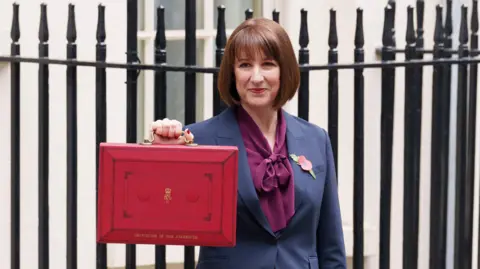Rachel Reeves’ Budget: A Necessary Gamble for Britain’s Future
Chancellor Rachel Reeves has faced her share of scrutiny following the release of her recent Budget, which introduced a near-record increase in taxes. Despite the backlash from those footing the bill, Reeves appears unfazed, prioritizing the long-term health of the UK economy over short-term popularity.
The nature of the Budget indicates a strategic approach, embodying a vision aimed at rebooting the UK’s economic model. Reeves, contrasting her approach with that of former Prime Minister Liz Truss, benefits from having a significant parliamentary majority that should allow her policies to be implemented effectively. This political clout plays a crucial role in fostering investor confidence as comparison to France’s current economic challenges illustrates.
Building Credibility
Two critical elements define the success of a Treasury: political credibility and financial integrity. Reeves’ predecessors struggled in these areas, particularly Kwasi Kwarteng, whose tenure was marked by significant turmoil in the bond markets. Investor sentiment towards government bonds remains lukewarm, influenced by the anticipated spending demands outlined in this Budget.
After Reeves’ speech, the announcement of increased government borrowing plans led to a marked rise in interest rates. The markets are now recalibrating themselves, responding to expectations that the Bank of England may hold off on cutting interest rates as aggressively as previously planned.
 Chancellor Rachel Reeves navigating the UK’s economic landscape
Chancellor Rachel Reeves navigating the UK’s economic landscape
Interest Rates on the Rise
This adjustment in market rates reflects not just government needs but also the looming prospect of higher borrowing costs for British consumers and businesses alike. Analysts predict that interest rates, currently above 4%, are unlikely to dip as sharply in 2024 as once anticipated. The upcoming inflation forecast from the Bank of England will undoubtedly draw significant attention in light of these developments.
The Scale of Change
The scope of Reeves’ Budget is staggering—an infusion of £76 billion annually in new government spending, half funded by tax reforms and the other half via borrowing. The Chancellor’s aides insist that the borrowing is aimed primarily at long-term investments in critical infrastructure, thus paving the way for more sustainable growth.
This expansive £105 billion investment scheme marks a substantial shift from previous Conservative administrations which leaned towards austerity. Continuing along this path has the potential to yield long-term benefits, although this is contingent upon the efficacy of the investment strategies employed.
Lessons from Across the Atlantic
Reeves’ plans may draw parallels with the U.S. model championed by President Joe Biden, which has resulted in massive public sector investment. Energy Secretary Ed Miliband’s recent visit to the U.S. underscores the necessity of learning from international frameworks while acknowledging the time required to actualize these bold proposals.
The infrastructure and policies set into motion by Biden have consistently indicated that momentum can take time to build. As the UK government endeavors to replicate this success, the clock is ticking to capitalize on available political capital before facing greater opposition.
Looking Ahead
The challenges posed by volatile political landscapes, such as the uncertainties tied to any potential return of Trump in the U.S., may complicate future strategies. However, with a solid governmental framework in place, Reeves, alongside Prime Minister Rishi Sunak and Energy Secretary Miliband, has a window of four years to establish and realize impactful changes.
For now, this Budget represents a gamble predicated on the effectiveness of long-term economic planning. Evaluating this strategy will take time, yet it is one the government deems essential if the UK is to recover from the economic impediments experienced over the past few years. As Reeves navigates the complexities of this transformation, the political consequences of her fiscal policies will certainly continue to unfold.














